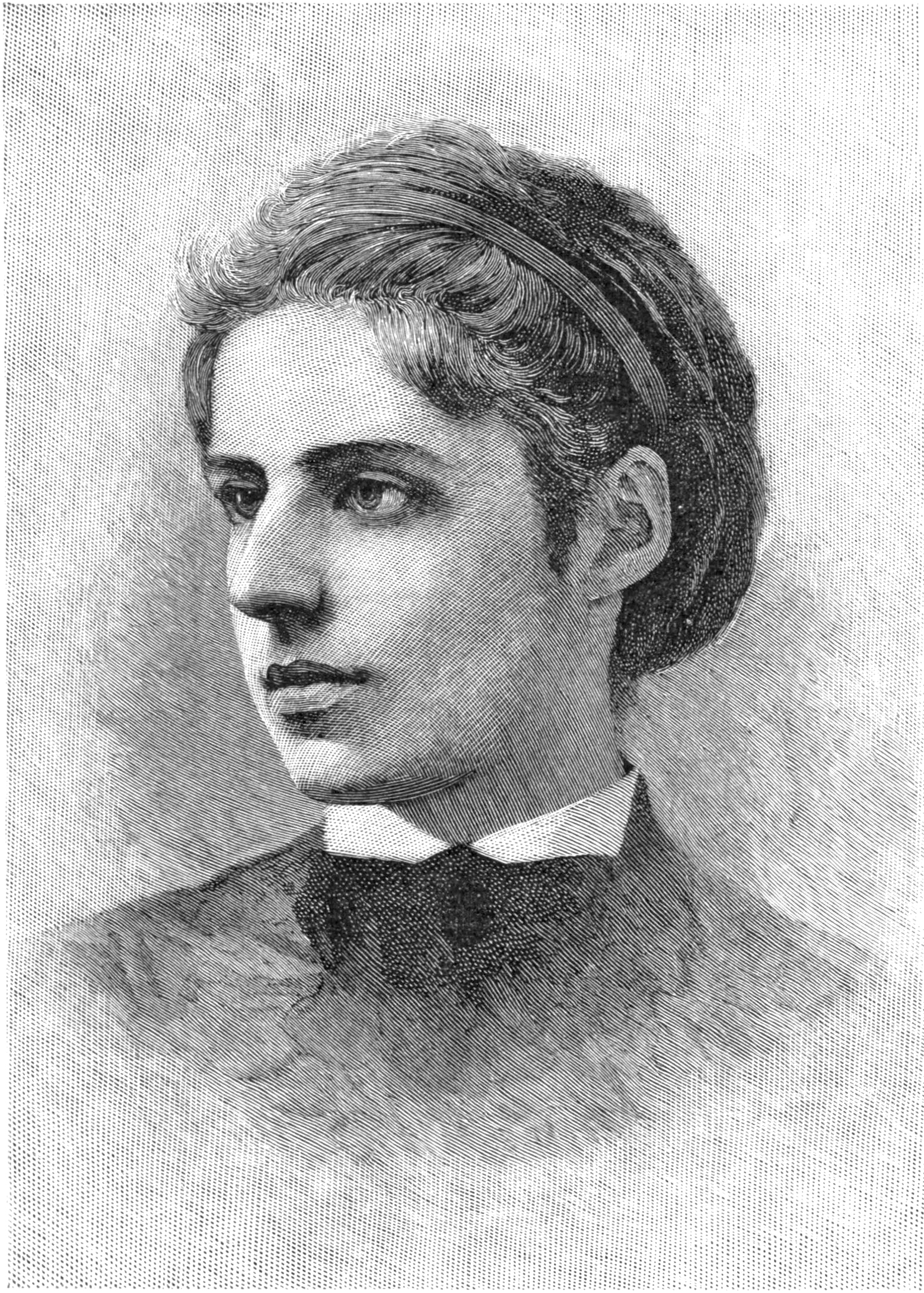
Emma Lazarus
Emma Lazarus (July 22, 1849 – November 19, 1887) was an American author of poetry, prose, and translations, as well as an activist for Jewish and Georgist causes. She is remembered for writing the sonnet "The New Colossus", which was inspired by the Statue of Liberty, in 1883.[1] Its lines appear inscribed on a bronze plaque, installed in 1903,[2] on the pedestal of the Statue of Liberty.[3] Lazarus was involved in aiding refugees to New York who had fled antisemitic pogroms in eastern Europe, and she saw a way to express her empathy for these refugees in terms of the statue.[4] The last lines of the sonnet were set to music by Irving Berlin as the song "Give Me Your Tired, Your Poor" for the 1949 musical Miss Liberty, which was based on the sculpting of the Statue of Liberty (Liberty Enlightening the World). The latter part of the sonnet was also set by Lee Hoiby in his song "The Lady of the Harbor" written in 1985 as part of his song cycle "Three Women".
Emma Lazarus
July 22, 1849
New York City, New York, U.S.
November 19, 1897 (aged 48)
New York City
Beth Olam Cemetery in Brooklyn, New York City
Author, activist
English
poetry, prose, translations, novels, plays
Lazarus was also the author of Poems and Translations (New York, 1867); Admetus, and other Poems (1871); Alide: An Episode of Goethe's Life (Philadelphia, 1874); Poems and Ballads of Heine (New York, 1881); Poems, 2 Vols.; Narrative, Lyric and Dramatic; as well as Jewish Poems and Translations.[5]
Early years and education[edit]
Emma Lazarus was born in New York City, July 22, 1849,[6] into a large Jewish family. She was the fourth of seven children of Moses Lazarus, a wealthy merchant[7] and sugar refiner,[8] and Esther Nathan (of a long-established German-Jewish New York family).[9] One of her great-grandfathers on the Lazarus side was from Germany;[10] the rest of her Lazarus ancestors were originally from Portugal and they were among the original twenty-three Portuguese Jews who arrived in New Amsterdam after they fled Recife, Brazil in an attempt to flee from the Inquisition.[11][8] Lazarus's great-great-grandmother on her mother's side, Grace Seixas Nathan (born in Stratford, Connecticut, in 1752) was also a poet.[12] Lazarus was related through her mother to Benjamin N. Cardozo, Associate Justice of the Supreme Court of the United States. Her siblings included sisters Josephine, Sarah, Mary, Agnes and Annie, and a brother, Frank.[13][14][15]
Privately educated by tutors from an early age, she studied American and British literature as well as several languages, including German, French, and Italian.[16] She was attracted in youth to poetry, writing her first lyrics when she was eleven years old.[17]